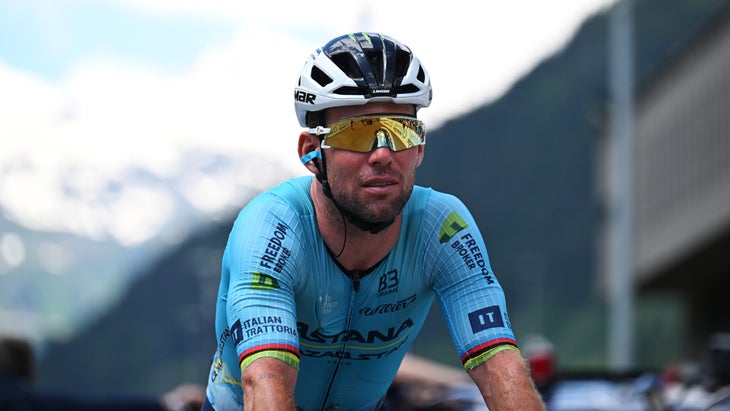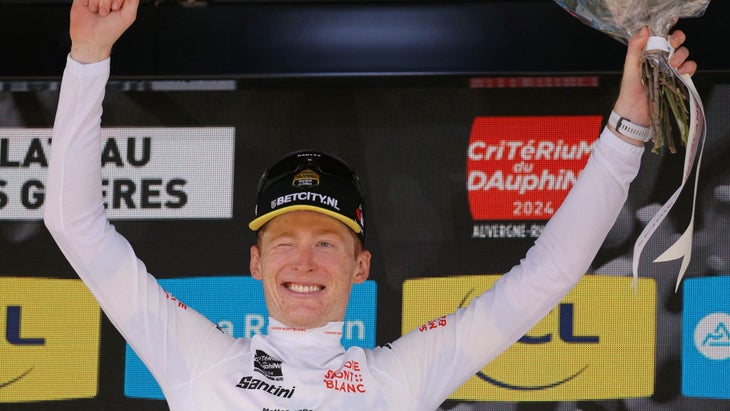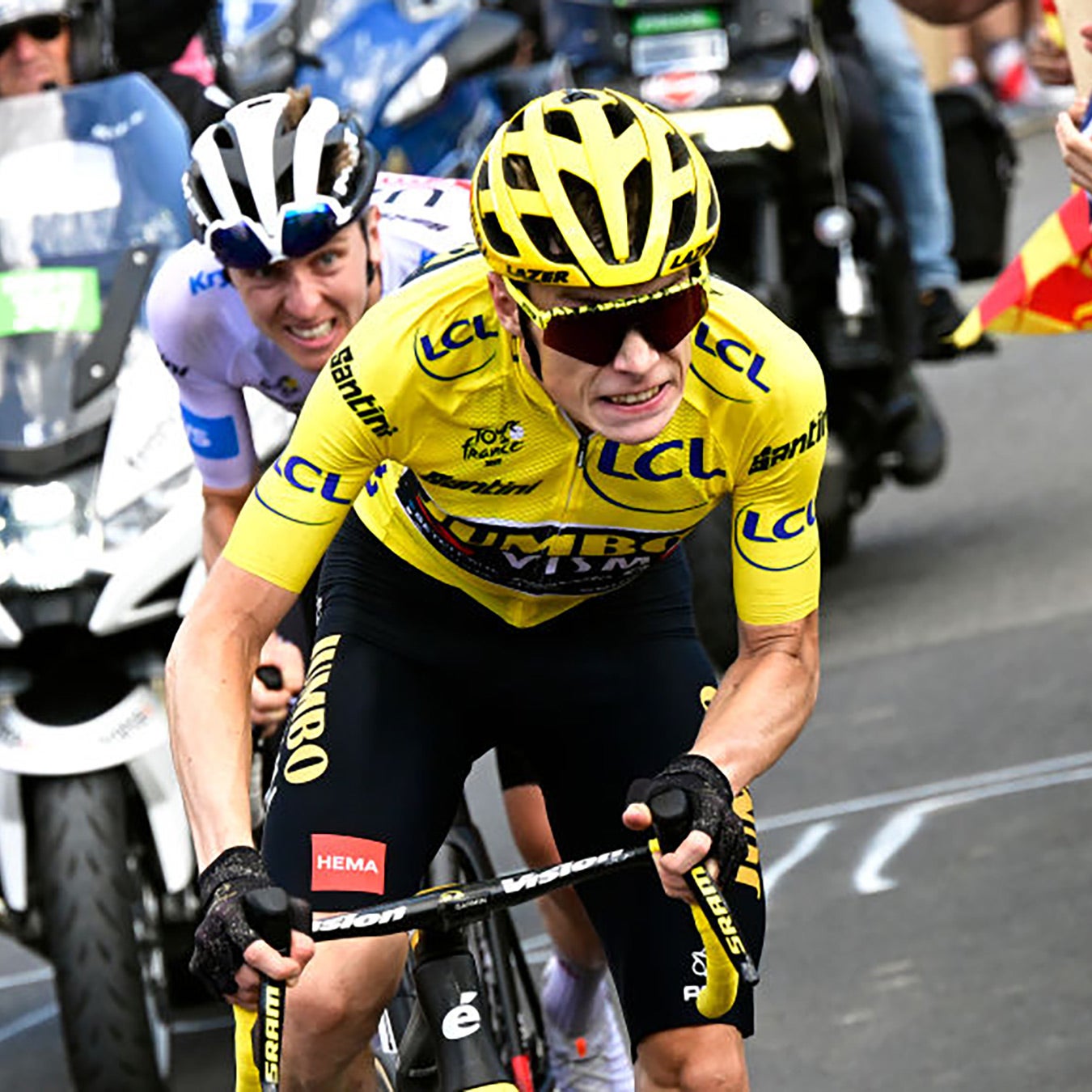The Tour de France kicks off Saturday in Florence, Italy, but you knew that already—the hardcore cyclists in your life have been chattering away about the race’s seemingly endless drama. You know, like whether a winning cyclist , or if a hapless team should be allowed to drink beer.
But you don’t have to study the Tour’s every twist and turn to be able to discuss the race at the office water cooler, or to voice your hottest Tour takes during the weekly group ride. While the 2024 Tour has dozens of compelling storylines to follow, there are the four you should know about.
Tadej Pogacar vs. Jonas Vingegaard, Round Four
The best athletic rivalries elevate sports—think Magic versus Bird or Federer versus Nadal. And for the last few years, the Tour de France has been defined by one of cycling’s best mano-a-mano battles in decades: Tadej Pogacar of Slovenia against Jonas Vingegaard of Denmark in the battle for the overall victory. The duel hit its zenith last year, when the two attacked each other like prize fighters on France’s hardest climbs for days on end. Their relentless aggression made for one of the most entertaining Tours in years—until Pogacar ultimately ran out of gas and ceded the win to Vingegaard.
The 2024 Tour marks their fourth consecutive battle, and Vingegaard, 27, comes in as the two-time defending champ. But he is not the favorite to win the Tour this year. That honor goes to Pogacar, 25, and the reason has everything to do with luck.
On April 4, Vingegaard was descending a swooping hill in the peloton during Spain’s Itzulia Basque Country race when several riders crashed in front of him. He tumbled to the asphalt and then slid into a concrete culvert, where he suffered a broken collarbone, broken ribs, and a collapsed lung. I’ve watched the crash a few times, and it sure seems like Vingegaard is lucky to have escaped the tumble with his life. He spent the next 12 days in a hospital, and didn’t get back on the bicycle until early May. Vingegaard hasn’t raced since the crash, and nobody knows what condition he will be in at the Tour. Riders typically train and also race their way into top competition form before the Tour, and Vingegaard has missed out on three months of competition.
I mention luck because Vingegaard is the more cautious of the duo with his Tour de France preparation. In recent years he has followed the tried-and-true Tour buildup of competing in week-long stage races, resting, and then training at high-altitude camps. Pogacar, meanwhile, has taken on the riskier pre-Tour pathway. In 2023 he abandoned the springtime stage races and instead raced the topsy-turvy cobblestone classics—he won the Tour of Flanders—before racing the hilly spring classics. He crashed at the Belgian classic Liege-Bastogne-Liege and fractured his wrist, and the injury undeniably hurt his buildup for the Tour.
Pogacar and Vingegaard’s rivalry is a study in contrasting styles. Pogacar is the child prodigy who is a throwback to a bygone era of cycling before the modern era of race specialization, when the best cyclists could win cobblestone classics, three-week Grand Tours, sprints, and every type of race in between. Vingegaard, meanwhile, is the hyper-specialized technician who can endure pro cycling’s monastic lifestyle of training, dieting, and resting better than anyone else to win the Tour de France.
Pogacar is also racing the 2024 Tour with a historic goal in his sights—he could become the first rider since Marco Pantani in 1998 to win the Giro d’Italia and Tour in the same season. The Giro-Tour double is a grueling test of endurance and recovery—a cyclist must race the three-week Giro in May, rest in June, and then be recovered to take on the Tour in July. Only seven cyclists have ever accomplished it (Pantani, Miguel Indurain, Bernard Hinault, Jacques Anquetil, Stephen Roche, Fausto Coppi, and the great Eddy Merckx. Not even four-time Tour champ Chris Froome could pull it off.
But the pathway seems to be opening for Pogacar to join the greats.
Mark Cavendish Chases the Tour’s All-Time Stage Win Record

British sprinter Mark Cavendish made his Tour de France debut in 2007—the same year that Tadej Pogacar celebrated his eighth birthday. “Cav,” as he is affectionately called, didn’t win a stage at that year’s edition. But in the following decades, Cavendish bolted to 34 stage victories—more than any pure sprinter in history. That number ties him in the Tour’s record book with Merckx, who won sprints, time trials, mountain stages, and even hilly stages during his storied career in the sixties and seventies.
Cavendish’s dogged pursuit of Merckx’s record has been a talking point for the last decade, and he has enjoyed successful Tours, but also endured years of setbacks. His latest peak occurred in 2021 when he won four stages and drew even with Merckx. It’s been tough going for Cavendish since then. He was left off his team’s Tour roster in 2022, and then abandoned the race in 2023 after crashing on stage eight and suffering a broken collarbone.
The 2023 injury was a bitter setback—Cavendish had revealed plans to retire at the end of the season. But after some soul searching, he announced plans to continue on in 2024 at age 39.
Winning a sprint stage at any age is a tough order for a pro cyclist. As the peloton rumbles into the finish, top sprinters jostle for position near the front before unleashing their powerful final kicks just a few hundred feet from the line. Crashes are common, so are injuries. Young legs and a fearless attitude are assets. In recent years, Cavendish has been more than a few Watts shy of younger sprinters, namely Jasper Philipsen of Belgium, who won four stages and the green jersey—the prize given to the race’s best sprinter—in 2023. But Cavendish is cagy and experienced, and may have a trick up his sleeve in what should be his final Tour.
Matteo Jorgenson Is America’s Newest Hope

Are you a fan of American cycling? Keep your eyes on Idaho native Matteo Jorgenson, perhaps the best hope the U.S. has at a Tour victory in the coming years. Sepp Kuss, the reigning Vuelta España champ, is out with COVID. The 24-year-old recently moved to Dutch squad Visma-Lease a Bike, the team of Jonas Vingegaard, and is on a tear this season, winning the Tour warmup race Paris-Nice and also the cobbled classic Dwars Door Vlaanderen. A few years ago I wrote about Jorgenson’s unorthodox pathway to the WorldTour, and how he sent his resume around to European development teams and networked with team directors during his final year in the junior ranks. All of that outreach worked, and he inked a deal with a French team for up-and-comers and got the chance to develop his racing skills in the European peloton.
Now, Jorgenson is one of the smartest young racers in the peloton. And with Vingegaard’s form unknown, he could become Visma Lease-a-Bike’s primary rider to win the Tour and its yellow jersey.
Say Au Revoir to the Champs Elysees
The Tour de France has concluded with its traditional sprint stage along Paris’ most famous avenue every year since the rock band Kiss told the world they wanted to rock and roll all night and party every day. For those who don’t measure time by the release of rock songs, that’s 1975.
That tradition is coming to an end—for 2024 the Tour will conclude with a mountainous individual time trial along the French Riviera on July 21. Why? The Paris Olympics start just five days after the Tour concludes, and the French capital is apparently big enough for one but not two major international sporting events.
I’ve read some traditionalist gripes online about the new format. But I’m here to say bienvenue to the new finale. Final time trials often produce dramatic finishes to the Tour: American fans no doubt remember Greg LeMond winning the 1989 Tour by just eight seconds after he stormed past Frenchman Laurent Fignon in a time trial held on the final day in Paris. And in 2020, Pogacar took his first Tour win after surpassing Primoz Roglic on a mountainous time trial on the penultimate stage.
Could the 2024 format produce a similarly dramatic finish? It’s the question that your hardcore cycling buddies are all asking themselves right now. I guarantee it.


